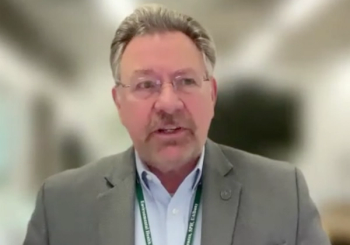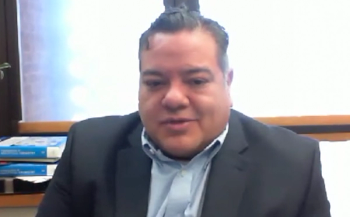
More Than Just Acronyms at EAS 2023
Award recipient John McLean of Vanderbilt University said hybrid techniques do not exist purely as combinations of letters, slashes, and hyphens—they have been built on the shoulders of decades’ worth of analysis intended to refine and simplify workflow.
The second day of the Technical Program of the Eastern Analytical Symposium & Exposition (EAS) 2023 got underway on Tuesday, November 14 in Plainsboro, New Jersey, USA with the presentation of the EAS Award for Outstanding Achievements in Mass Spectrometry to John McLean, a professor of chemistry at Vanderbilt University in Nashville, Tennessee, USA (1).
Session chair Erin Baker of the University of North Carolina introduced McLean, saying she has known him for more than 20 years and officially presented him with the award sponsored by the American Microchemical Society, prior to McLean’s lecture titled “Advanced Molecular Phenomics in Systems, Synthetic, and Chemical Biology.”
Prior to a mid-session break, McLean was able to discuss his topics of talk in depth, because collaborator Facundo Fernández, of the Georgia Institute of Technology in Atlanta, Georgia, USA, was unavailable to deliver his scheduled lecture on the potential of mesenchymal stromal cells (MSCs) to modulate immune cells in regenerative medicine applications.
In the talk, McLean explained how tiers of different analytical techniques have evolved over the years into complex and precise combined processes such as liquid chromatography coupled to ion mobility tandem mass spectrometry (LC–IM-MS/MS).
LC–IM-MS/MS combines the separation capabilities of liquid chromatography with the ion mobility separation and precise mass analysis of tandem mass spectrometry. This hybrid method enhances the separation and identification of complex mixtures, providing detailed structural information and improving the overall sensitivity and selectivity of the analysis.
“It’s not because we want to generate the longest acronym ever created, but rather we want to take the best components of information from each of these dimensions and marry them,” McLean said.
McLean talked about his current research concentrations at Vanderbilt which include, among other things, drug composition and foodomics—the latter of which, more precisely, applies genomics, transcriptomics, proteomics, and metabolomics to study the composition, quality, safety, and nutritional aspects of food.
Summarizing his work, McLean expressed pride for his assistants in the classroom and the lab both present and past.
“Nothing makes me more excited than when I have students that go on and do awesome things,” he said.
Reference
(1) McLean, J. Advanced Molecular Phenomics in Systems, Synthetic, and Chemical Biology. Presented at the Eastern Analytical Symposium & Exposition 2023, Plainsboro, New Jersey, November 14, 2023.
Newsletter
Get essential updates on the latest spectroscopy technologies, regulatory standards, and best practices—subscribe today to Spectroscopy.




